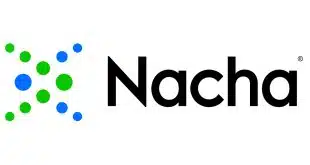If hype augurs success, the new Square payments application for mobile merchants is off to a promising start. The product, announced this week by a San Francisco startup called Square Inc., is attracting attention not just in the payments business but in the wider business community. That's because Square's founder is Jack Dorsey, the cofounder of Twitter, the hugely popular social-networking utility, and because the company is backed by Khosla Ventures, an established Silicon Valley venture-capital firm. All of this has made for far more publicity than the standard-issue payments startup gets. But for all its glitter, Square has entered a fiercely competitive market with a number of similar products already in play, while leaving up in the air questions about how the product protects data and how far it can really go in the merchant market. “We're trying to filter the signal from the noise,” says Nick Holland, an analyst at Aite Group LLC who follows mobile payments. What Dorsey announced this week is an app for the iPhone that works with a very small, dongle-like card reader that plugs into the audio jack of Apple Inc.'s popular phone. To process a card transaction, the user swipes the card through the reader, triggering an audio signal that carries the card data into the app, which encrypts the transaction and sends it on to Square's servers. From there, the transaction flows over WiFi or 3G connections to the relevant processors. The app also produces a screen with a representation of a receipt on which the card user can sign his name with his finger. The merchant sends an actual receipt to the customer via short-message service and e-mail. Users can be merchants or individuals who want to receive electronic payments from other persons. According to published accounts, Square, which did not respond to an interview request from Digital Transactions News, is targeting both types of transaction. In either case, users create an account with Square that is linked to a bank account, following the PayPal model. A handful of small merchants (including a San Francisco coffee house in which Dorsey is reportedly an investor) are said to be using the app in what the company calls a private beta, and, though published accounts leave this point unclear, it would appear Square is the holder of the merchant account, since users aren't required to have one or to apply for one. Pricing is apparently unsettled. Dorsey was quoted in one press account this week indicating the company may give away the card-swipe dongle and charge $1 for the app. Transaction fees weren't mentioned, though the card swipe would presumably incur lower interchange rates than would apply if card numbers had to be entered manually on the phone. Much could change. The product is still in its infancy, and Square has said it plans to introduce versions for other smart phones. Already, some observers credit Square with a number of clever features, such as the audio-jack connection and the ability to sign receipts. “I think it's an ingenious little device,” says Holland. But these same experts caution that questions remain concerning security and the increasing competitiveness of the market for mobile merchant transactions. Several companies have already introduced apps this year for the iPhone and other smart phones that let merchants process cards. These include major players like Intuit Inc. and TSYS Inc. as well as small processors and gateways like Merchant Warehouse and Charge Anywhere. Terminal maker Ingenico this fall introduced personal digital assistant that doubles as a payment terminal (Digital Transactions News, Oct. 27). And a small engineering company called HomeATM ePayment Solutions markets a device that also connects to mobile phones via the audio jack and can process PIN debit transactions. Square may have a significant pricing advantage over these competitors, though that remains to be seen. Questions also swirl around the masking of card data in the app. “We don't know how the message is being encrypted,” says one observer who asked for anonymity. Other questions concern the interaction itself. “It feels a little klugey and a little unsafe,” notes this observer. “How difficult would it be to jailbreak the iPhone, and tell the customer you're charging him for $20 when you're really charging $200?” Aite's Holland argues that, for all Square's ingenuity, merchants are ultimately going to demand mobile payment products from established terminal vendors. “It needs to be productized as industrial grade,” he says. But for now, Square along with its competitors appears to be addressing a felt need among merchants?and consumers–searching for ways to affordably take cards on the go. “Consumers are clearly demanding, using, and planning to use mobile financial services,” says Michael Friedman, senior analyst at Mercatus LLC, an advisory service with a specialty in mobile payments. “That demand is fueling innovation and products like Square.”
Check Also
Klarna Added to eBay’s U.S. Marketplace and other Digital Transactions News briefs from 4/23/25
The e-commerce giant eBay Inc. said it will widen its global partnership with payments platform Klarna AB …





